Meet the head greenkeeper: Telma Granja
Less that two per cent of greenkeepers in the UK are women. However, there is growing female interest in the profession and there are women like Telma Granja, who leads an all-male team of 11 greenkeepers at a Portuguese golf course that’s 2,200 feet above sea level.
When James Brown opined, in his inimitable fashion, that ‘This is a man’s world’, he was talking in general terms, not, specifically, about greenkeeping.
But he might well have done, for, let’s be frank, the number of times the average golfer will meet a female head greenkeeper can probably be counted on the fingers of one James Brown, with enough left over to carry a brand new bag.
But there are some who are leading the way and acting as an inspiration for the next generation of young girls who fancy a career in turfgrass science or management.
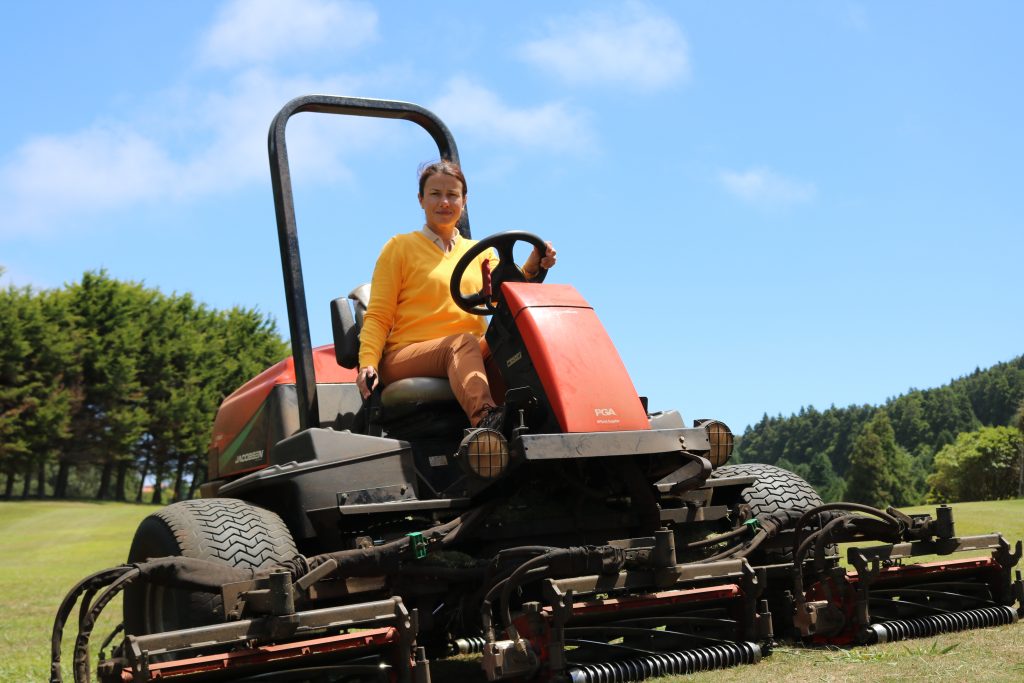
At the vanguard of the movement in Portugal is 39-year-old Telma Granja, who leads an all-male team of 11 greenkeepers at Santo da Serra, on the island of Madeira.
It’s impossible to know whether her obvious passion for the job has been enhanced because she’s a woman succeeding in a ‘man’s world’ or not – but, what is undeniable, is that she can clearly inspire young women to follow a similar career path.
Granja has been head greenkeeper at the spectacular Santo da Serra since 2013, and insists she has not experienced any sexism since she started out in the industry in 2005.
She said: “I do not remember ever feeling a difference, not between co-workers nor on the team I coordinate. It is important we all work with the same focus, to do more and better work, always learning from each other. We work equally well and are equal. Although, of course, men are stronger!
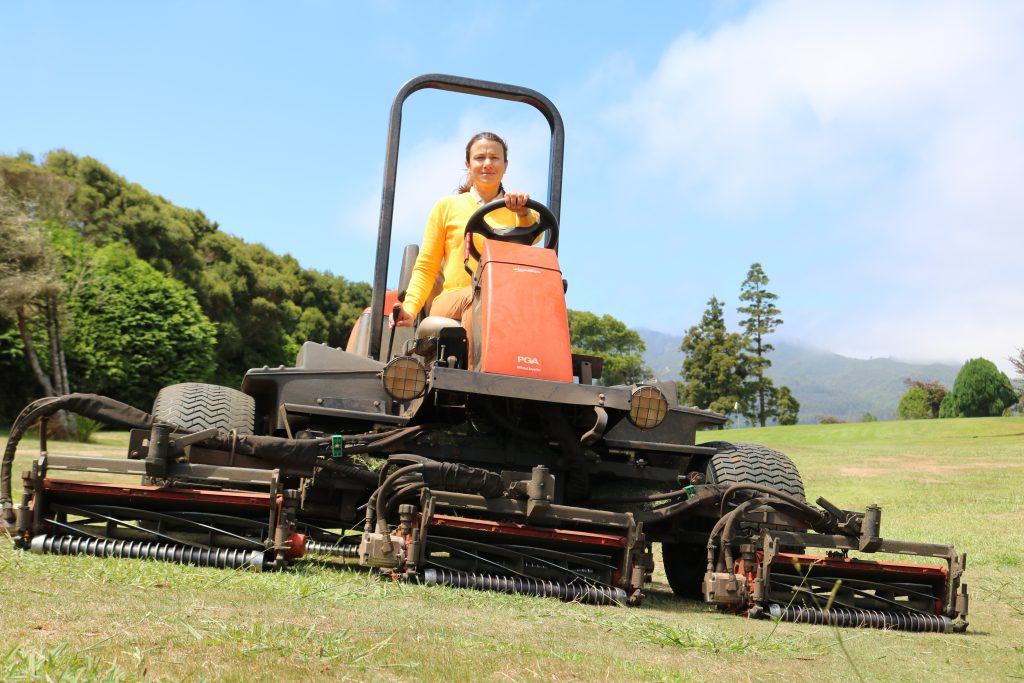
“Although greenkeeper is a position held mostly by men, there are five or six women doing it in Portugal. I cannot say that something in particular inspired me to do the job. I felt this was the way to go, a job where I could learn and evolve professionally. And it remains a constant learning experience because we are dealing with a living entity with a level of evolution.”
Having completed her agronomy course in 2005, Granja started her career path with an internship at the relatively new, Donald Steel-designed Santo Estêvão Golf, near Lisbon.
“I took an immediate liking to that area of the industry and decided to specialise,” she recalled.
“I gained a lot of knowledge at Santo Estêvão through study and working on the course. The director there, Luís Catarino, was one of the biggest influences on my career. He was extremely demanding and dynamic, which required me to learn a number of skills, display professional competence, dedication and a willingness to learn.
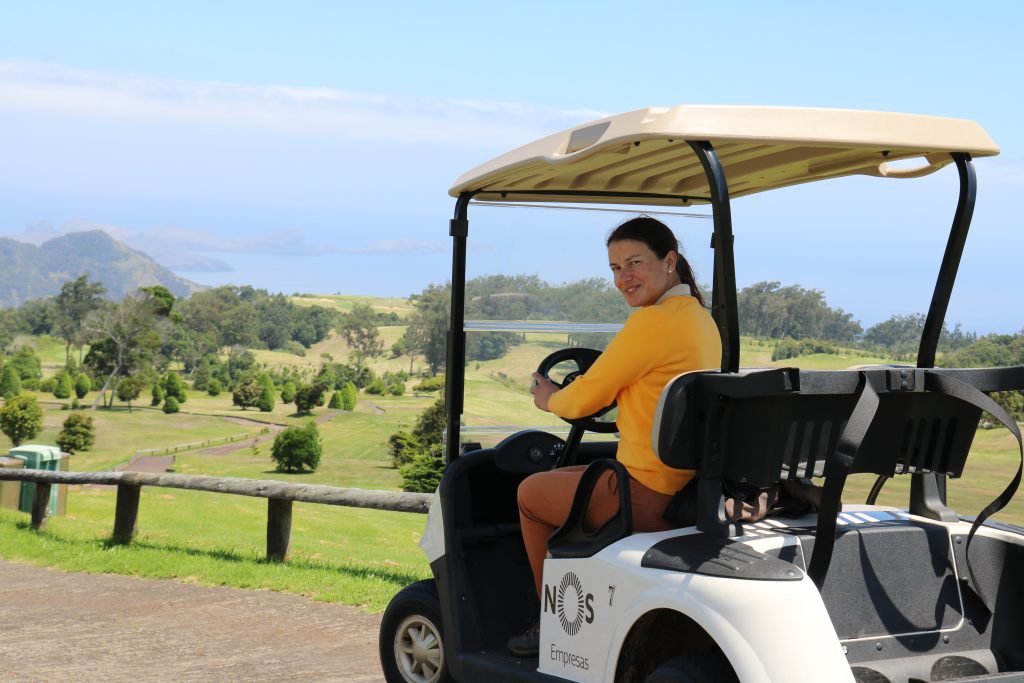
“After the internship, I applied to be assistant to the head greenkeeper at Quinta da Marinha, in Cascais. I learned a lot there, also. I worked as assistant to Nuno Moura who has extensive knowledge and is a wonderful leader – he is one of the best head greenkeepers in the country, I have no doubt. He was a huge influence.”
In 2013, the opportunity arose to move from the mainland to Madeira, a Portuguese territory in the Atlantic, a little more than 300 miles from the African coastline. This time the position was as head greenkeeper at Santo da Serra Golf, and, despite the near 1,000km distance, she admits she “did not hesitate”.
She added: “Santo da Serra Golf is a nationally prestigious course, part of the European Tour circuit for many years, and currently hosts the Madeira Golf Trophy, a very important tournament for tourism in Madeira, which, consequently, makes it a very demanding greens’ course.
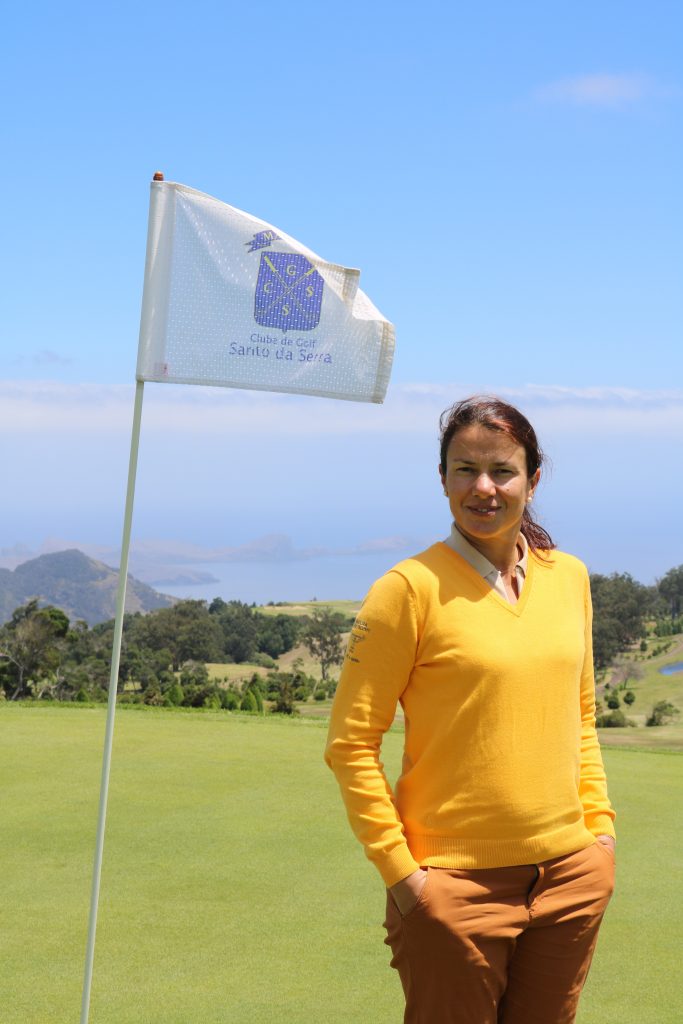
“I find its unique location and landscape – with the breathtaking views of Porto Santo and the bay of Machico, where Portuguese navigators first landed in 1419 – acts as an inspiration for me.”
The course – which dates originally from 1937 – was redesigned in 1991 by Robert Trent Jones Snr, who created a spectacular 27-hole complex. The Machico and Desertas nines form the 6,825-yard championship course, on which the European Tour’s Madeira Islands Open was held on 10 occasions – Mark James winning the inaugural 1993 tournament.
The third and fourth on the Machico are regarded as the signature holes, sitting atop impressive cliffs more than 2,200 feet above the Atlantic, while the 3,193-yard Serras course offers a delightful alternative, with lakes and mountain views along flatter terrain. Small wonder Granja finds inspiration in the environment.
Female greenkeepers are on the rise across Europe. The volunteer greenkeeping team at the Solheim Cup at Gleneagles in September included eight women alongside Gleneagles’ own Laura Campbell.
“The greenkeeping profession is particularly male-dominated and the number of ladies in the industry is reflected in our membership, where less than two per cent are female,” said Jim Croxton, chief executive of BIGGA (the British and International Golf Greenkeeping Association).
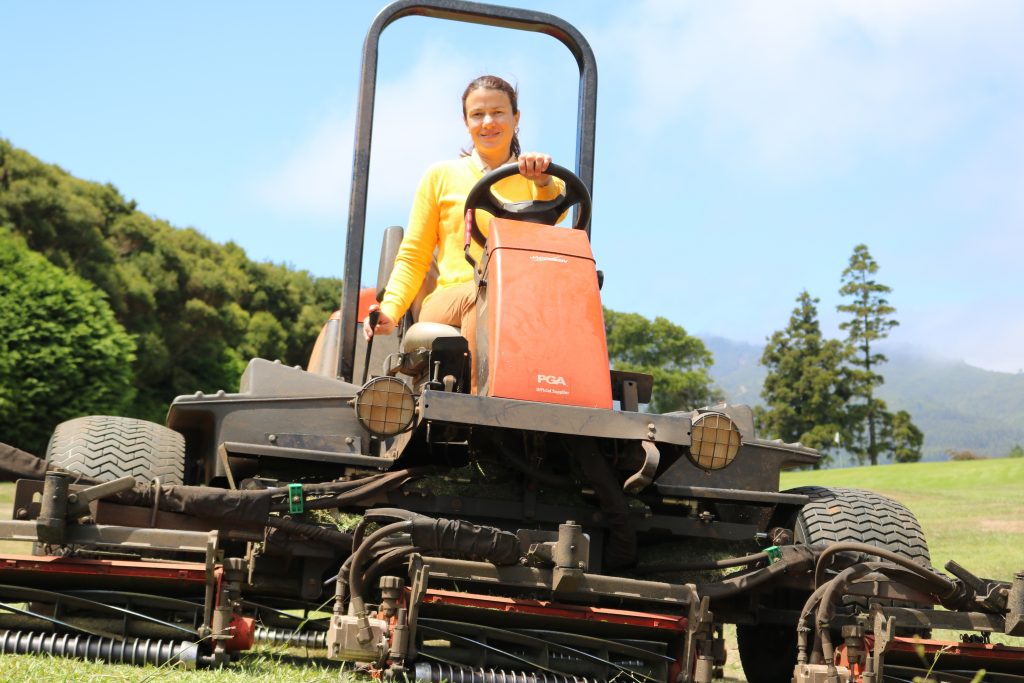
“It’s my belief that as schemes such as Women & Girls Golf Week, which coincided with the British Women’s Open, raise interest in golf among ladies, we’ll see the knock-on effect of more women choosing to pursue a career in greenkeeping.
“Those ladies who are members of the association invariably tell us that they enjoy the lifestyle that greenkeeping affords them, both in terms of having a physically-active role and working outdoors. They’ll tell you that there’s nothing a man can do out on the course that they can’t and they are, of course, absolutely correct.
“At the Women’s British Open in July, I was delighted that courses manager John Clarke extended an invitation to every female member of BIGGA to join the volunteer team, with seven answering the call. These ladies had a fantastic time and in addition to gaining invaluable tournament experience themselves, they also acted as incredible ambassadors for the profession and my thanks go out to them all.”
But, as with any job there are pros and cons, and good and bad days …
“The best thing about my job is that we can see the result of the hard work we put in out on the course. It’s as if the grass is appreciating the special treatment we give it – it’s thanking us for the special care. I love to tell my team ‘Well done, our grass is happy’,” says Granja.
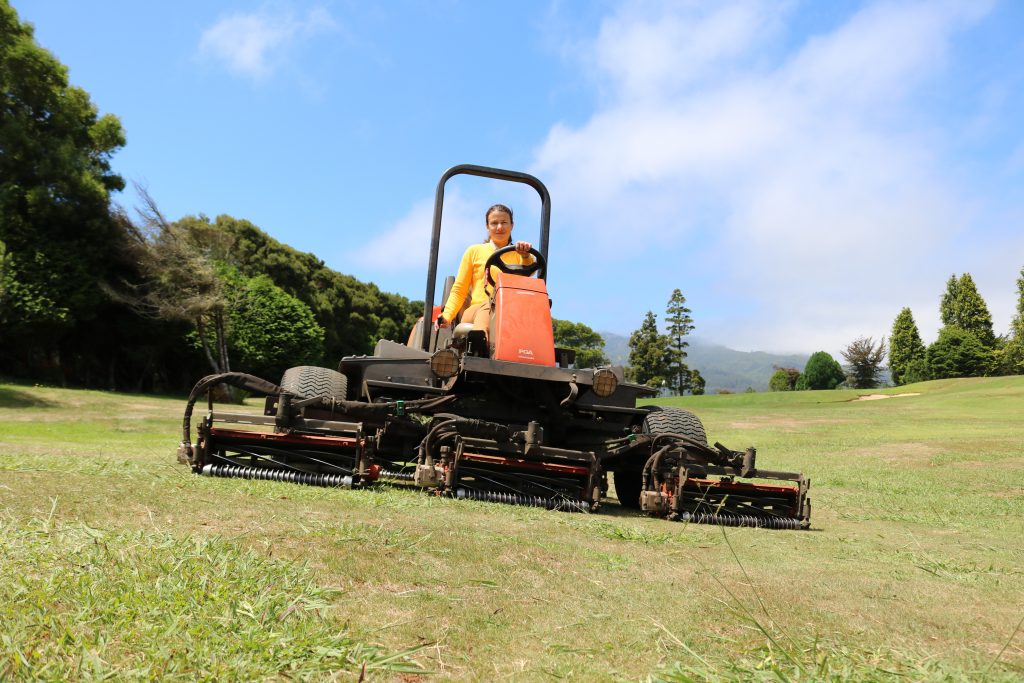
“Bad days? We all have bad days, I’m no different. Sometimes, I just worry about personal and professional growth like everybody does. But they are normal and healthy ambitions,” she smiled.
“One of the biggest problems I face is water management. We suffer from a huge water shortage in the summer and our irrigation is quite old. And, like most golf clubs, we have very small teams and very small annual budgets.”
The club uses both Toro and Jacobsen equipment, with Stihl blowers and brush-cutters for the smaller work.
Having showed she can succeed in a man’s world, Granja has some advice for any young women – or men for that matter – considering following in her footsteps in greenkeeping.
She said: “I think you have to feel that you like it a lot. It is necessary to like it very much, because the work is outdoors, whether it’s cold, hot, windy, dry or wet, while the hours are long – most of the time you come in when it’s dark. I think it would be unbearable if we weren’t really passionate about it.
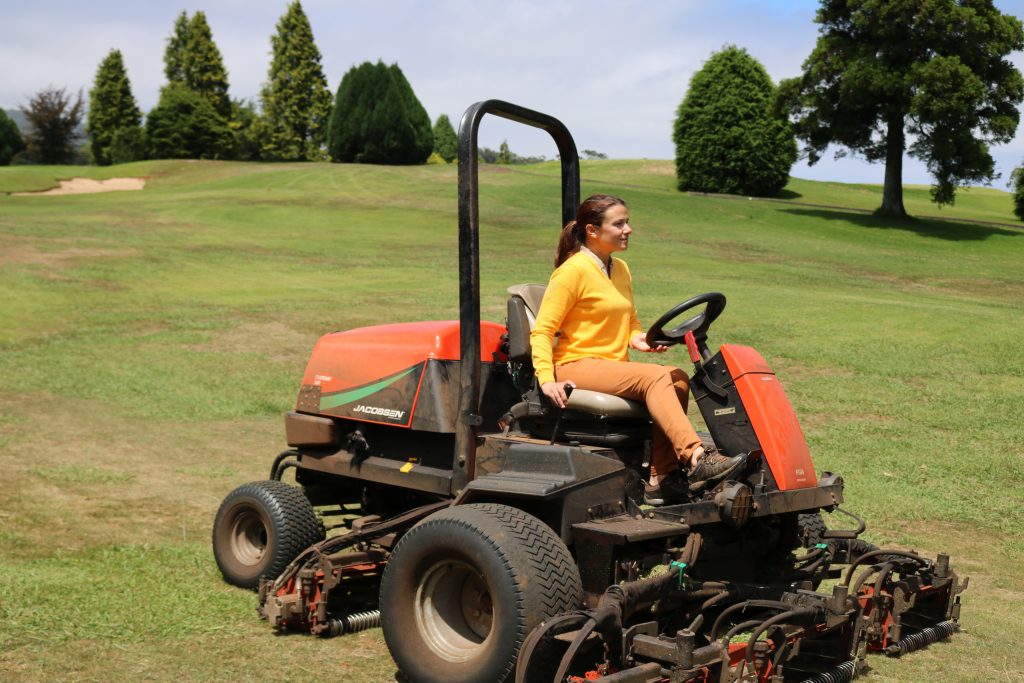
“If you love it and are dedicated to it, then that is where you find the satisfaction and pleasure. Personally, I love my work and am dedicated to it, trying every day to improve and get better and better. I don’t see myself being so passionate about, or doing any other job as well. The only way to do great work, is to LOVE what you do.
“However, if I had to do something else … I don’t know what it would be, but it certainly would have to be outdoors. I find nature extraordinary, inspiring and full of positive forces.”
Although Granja is wholly dedicated to her current role at Santo da Serra, she did allow herself a brief pause to contemplate her professional ambitions. After some thinking time, she said modestly: “I would find it interesting to be head greenkeeper of the European Tour.”
Now that really would be something for young women to look up to…















Let me tell You a sad story ! There are no comments yet, but You can be first one to comment this article.
Write a comment